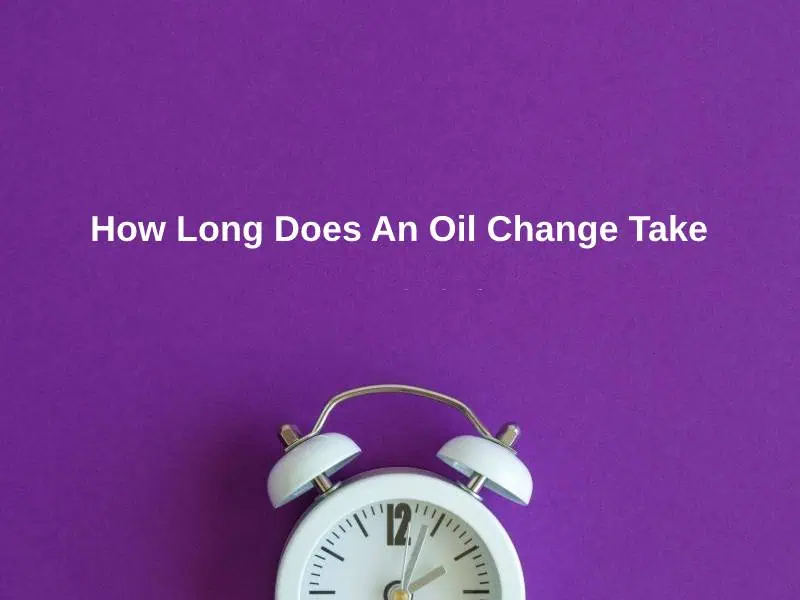Exact Answer: 30 – 45 Minutes
An oil change is an act of removing the used oil from the engine and replacing it with new, clean oil. Over time, oil breaks down and gets dirty. That’s why it is important to change the oil according to the vehicle’s specifications.
An oil change is one of the most common maintenance projects that is required to be done on a vehicle.
It is essential for the vehicle to get an oil change as changing the oil ensures that the car engine is sufficiently and properly lubricated so that the performance of the car on the streets is not affected.

How Long Does An Oil Change Take?
Having an oil change is not a herculean task. It is an easy commitment that gets completed in less than an hour when done by professionals. However, if one tries to change the oil on his own, it can take a lot longer as the expertise and efficiency required for changing oil might be absent.
Clean oil keeps the engine running the way it should. If the oil is not changed, the engine can create loud clanging noises because it is not lubricated properly by the clean oil. Besides loud sound in the engine, other signs which indicate the need for oil change include oil smell inside the car, decreased fuel efficiency, and more frequent trips than usual to fill up at the petrol pump.
The time required to change the oil also depends on whether or not the vehicle requires additional maintenance inspection. If there are no other problems with the vehicle, the process of changing the oil can take place in a jiffy. It also depends on how long it has been since the last oil change was done.

| Steps | Time |
| Waiting for the old oil to drain | 10 – 12 minutes |
| Getting the old filter off and changing the oil filter | 5 – 8 minutes |
| Putting on the new oil filter | 3 – 4 minutes |
| Filling it with new oil and checking its level | 8 – 10 minutes |
Why Does Oil Change Take So Long?
The process of changing oil involves draining out all the existing oil in the engine and changing the oil filter. Once all the existing oil is drained, the engine is filled with the new oil. After the process of changing oil is done, the car technicians inspect the engine briefly to make sure that everything is fine.
Motor oil helps keep the car engine running clean. As the oil flows through the engine, preventing friction, wear and tear, it picks up a lot of dirt and many other contaminants. In the due course of time, the oil becomes saturated with pollutants allowing the formation of sludge. This can later lead to engine damage and costly repairs.
If the vehicle uses conventional oil, it needs to be changed every 5,000 miles or so. If it uses synthetic oil, that number increases to about 10,000 miles.

If one drives an older vehicle or drives under severe conditions, then the oil should be changed every 3,000 miles. Examples of severe driving conditions include using the vehicle to tow heavy loads, driving on dusty, muddy, or sandy roads.
It is extremely bad to wait too long for an oil change. The longer one waits, the more contaminated the oil in the vehicle’s system will get until it starts to impact the vehicle’s performance. Everything the polluted oil touches will then begin to degrade if one does not change the oil regularly and on time.
Conclusion
Clean oil helps the engine to work properly as it lubricates the different moving parts to prevent friction. It also keeps those parts nice and cool. When the parts move against each other, the engine becomes very hot. If the engine overheats, it can break down, resulting in costly repairs. Additionally, if the oil is not changed, it will pick up dirt and debris over time. This will in turn speed up corrosion and cause the engine to wear.
The process of oil change just takes about 30 – 45 mins. Dirty oil, if not changed, causes the engine to overcompensate and work harder than normal. But with clean oil, that effort is significantly lessened. Changing the oil when it is required by the vehicle ensures that the engine is not consuming much gas, giving away significant fuel savings in the long run.